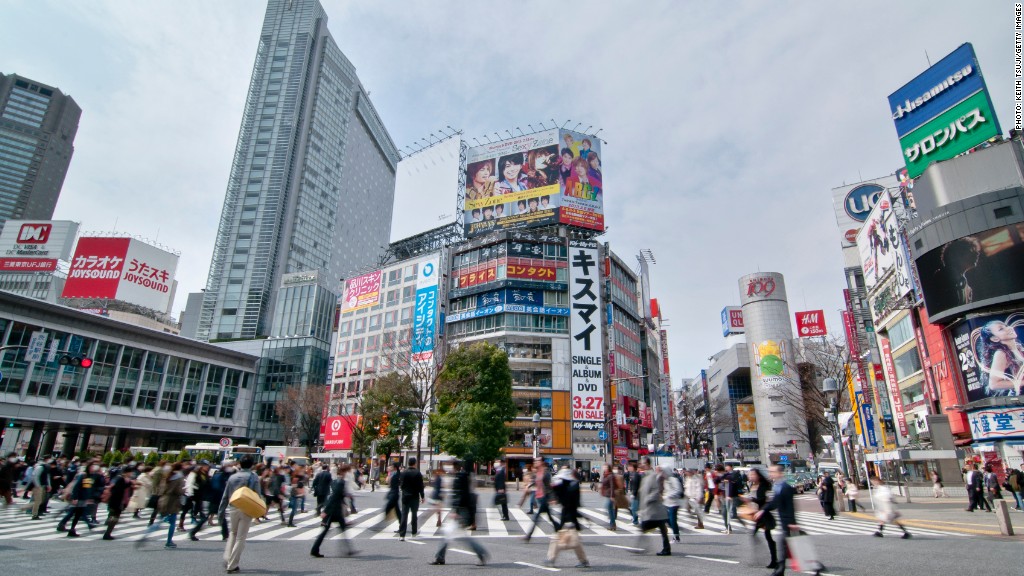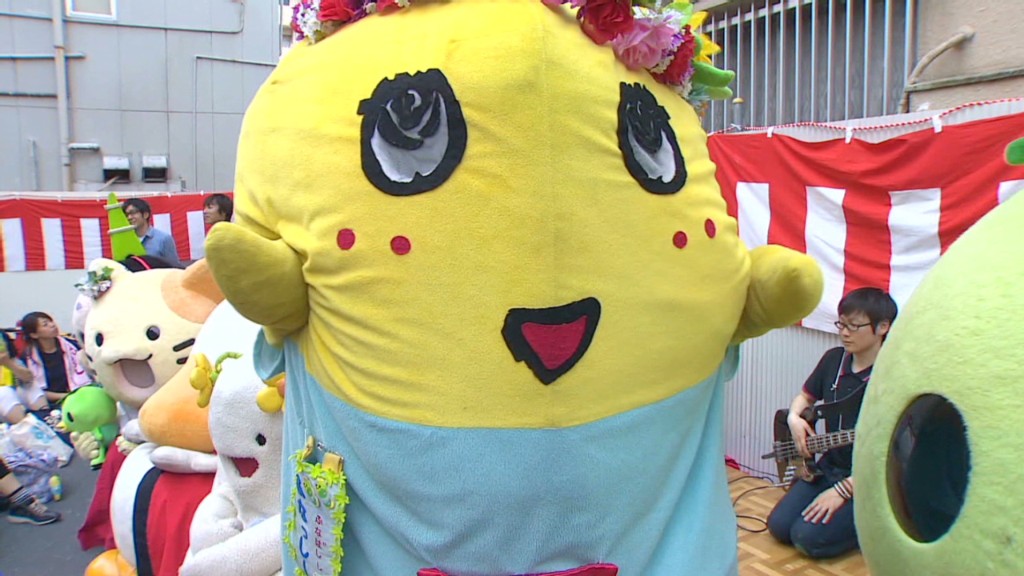
Japan will cut corporate tax to below 30% as part of a reform package designed to secure the country's emergence from decades of deflation and slow growth.
Japan Inc. currently faces a corporate tax rate of roughly 35%, one of the highest in the world. The first rate reductions will be made in fiscal year 2015.
The first two parts of Japan's broad revival strategy -- dubbed "Abenomics" -- included massive monetary stimulus and government spending. The idea is that the combined measures will end years of deflation, leading to more robust growth for the world's third largest economy.
The economy has picked up, the yen has fallen sharply and stocks have risen dramatically. Still, without structural reforms those gains could be squandered.
"We need to continue to push through this recovery," Abe told reporters. "Everything depends on the implementation of our growth strategy."
The Nikkei -- which boomed by more than 50% last year as the central bank pumped easy money into the economy -- has lost its momentum. The index is down almost 6% this year. Growth surged earlier this year, as consumers rushed to beat a sales tax increase, but is expected to fall back sharply this quarter.
The structural changes announced Tuesday also included a shakeup of the country's massive pension fund and a loosening of immigration restrictions.
Marcel Thieliant, an economist at Capital Economics, said the corporate tax cut is the "single most important element" of the reform package.
"This is positive both for the economy and the stock market, even though the reduction in the tax rate may be watered down by a broadening of the tax base," he said.
Other measures are designed to draw more Japanese women into the workforce -- a key issue in a country that faces a shrinking population.
If the reforms announced Tuesday sound familiar, it's because Abe announced a similar "third arrow" last year. That proposal, criticized for a lack of details, gained little traction.

Some of the complaints may be revived. On the tax cut, for example, Abe provided few details on how the government will recoup foregone revenue. Japan is the most indebted country in the world and needs to keep its budget deficit from growing.
Related: Japan debt tops 1 quadrillion yen
Thieliant said that the revised growth strategy is "unlikely to boost potential growth significantly." The plan, he said, does not do enough to address Japan's shrinking workforce -- the main factor holding back growth.
Others struck a more optimistic note, arguing that Abe should be given time to fully implement the plan.
Frederic Neumann, co-head of Asian economic research at HSBC, said it would be "short-sighted" to dismiss it.
"In fact," he wrote in an op-ed published by Nikkei, "by Japanese standards, the proposals are quite bold."
The central bank is something of a wild card in the reform calculus. Already on a major stimulus kick, some economists think the bank could ramp up its bond purchases even higher if inflation numbers lag.
-- CNN's Junko Ogura and Pamela Boykoff contributed reporting.


